Maneesha Aluru
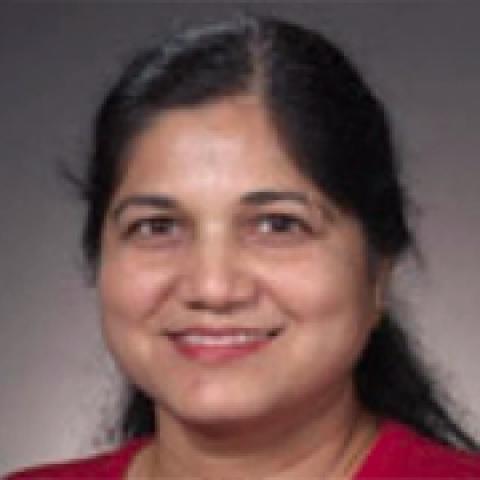

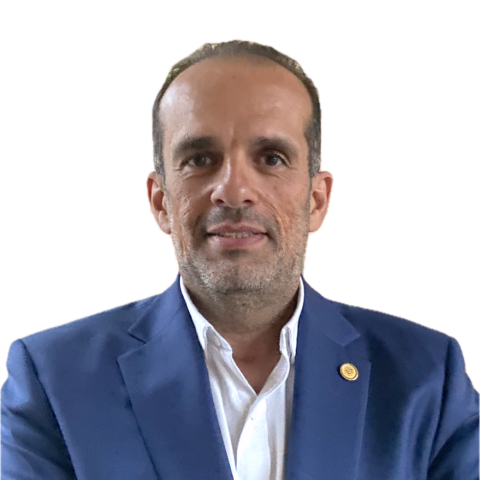
Prof. AlRegib is currently the John and Marilu McCarty Chair Professor in the School of Electrical and Computer Engineering at the Georgia Institute of Technology. His group is the Omni Lab for Intelligent Visual Engineering and Science (OLIVES) at Georgia Tech. In 2012, he was named the Director of Georgia Tech’s Center for Energy and Geo Processing (CeGP). He is the director of the Center for Signal and Information Processing (CSIP). He also served as the Director of Georgia Tech’s Initiatives and Programs in MENA between 2015 and 2018. He has authored and co-authored more than 300 articles in international journals and conference proceedings. He has been issued several U.S. patents and invention disclosures. He is a Fellow of the IEEE.
Prof. AlRegib received the ECE Outstanding Graduate Teaching Award in 2001 and both the CSIP Research and the CSIP Service Awards in 2003. In 2008, he received the ECE Outstanding Junior Faculty Member Award. In 2017, he received the 2017 Denning Faculty Award for Global Engagement. He and his students received the Beat Paper Award in ICIP 2019. He received the 2024 ECE Distinguished Faculty Achievement Award at Georgia Tech. He and his students received the Best Paper Award in ICIP 2019 and the 2023 EURASIP Best Paper Award for Image communication Journal.
Prof. AlRegib participated in a number of activities. He has served as Technical Program co-Chair for ICIP 2020 and ICIP 2024. He served two terms as a member of the IEEE SPS Technical Committees on Multimedia Signal Processing (MMSP) and Image, Video, and Multidimensional Signal Processing (IVMSP), 2015-2017 and 2018-2020. He was a member of the Editorial Boards of both the IEEE Transactions on Image Processing (TIP), 2009-2022, and the Elsevier Journal Signal Processing: Image Communications, 2014-2022. He was a member of the editorial board of the Wireless Networks Journal (WiNET), 2009-2016 and the IEEE Transaction on Circuits and Systems for Video Technology (CSVT), 2014-2016. He was an Area Chair for ICME 2016/17 and the Tutorial Chair for ICIP 2016. He served as the chair of the Special Sessions Program at ICIP’06, the area editor for Columns and Forums in the IEEE Signal Processing Magazine (SPM), 2009–12, the associate editor for IEEE SPM, 2007-09, the Tutorials co-chair in ICIP’09, a guest editor for IEEE J-STSP, 2012, a track chair in ICME’11, the co-chair of the IEEE MMTC Interest Group on 3D Rendering, Processing, and Communications, 2010-12, the chair of the Speech and Video Processing Track at Asilomar 2012, and the Technical Program co-Chair of IEEE GlobalSIP, 2014. He lead a team that organized the IEEE VIP Cup, 2017 and the 2023 IEEEE VIP Cup. He delivered short courses and several tutorials at international events such as BigData, NeurIPS, ICIP, ICME, CVPR, AAAI, and WACV.
In the Omni Lab for Intelligent Visual Engineering and Science (OLIVES), he and his group work on robust and interpretable machine learning algorithms, uncertainty and trust, and human in the loop algorithms. The group studies interventions into AI systems to enhance their trustworthiness. The group has demonstrated their work on a wide range of applications such as Autonomous Systems, Medical Imaging, and Subsurface Imaging. The group is interested in advancing the fundamentals as well as the deployment of such systems in real-world scenarios. His research group is working on projects related to machine learning, image and video processing, image and video understanding, subsurface imaging, perception in visual data processing, healthcare intelligence, and video analytics. The primary applications of the research span from Autonomous Vehicles to Portable AI-based Ophthalmology and Eye Exam and from Microscopic Imaging to Seismic Interpretation. The group was the first to introduce modern machine learning to seismic interpretation.
In 2024, and after more than three years of continuous work, he co-founded Georgia Tech’s AI Makerspace. The AI Makerspace is a resource for the entire campus community to access AI. Its purpose is to democratize access to AI. Together with his team, they are developing tools and services for the AI Makerspace via a VIP Team called AI Makerspace Nexus. In addition, he created two AI classes from scratch with innovative hands-on exercises using the AI Makerspace. One class is the ECE4252/8803 FunML class (Fundamentals of Machine Learning) where students learn the basics of Machine Learning as well as eight weeks of Deep learning both mathematically and using hands-on exercises on real-world data. The second class is a sophomore-level AI Foundations class (AI First) that teaches any student from any college the basics of AI such as data literacy, learning, decision, planning, and ethics using theory and hands-on exercises on the AI Makerspace. Prof. AlRegib wrote two textbooks for both classes.
Prof. AlRegib has provided services and consultation to several firms, companies, and international educational and R&D organizations. He has been a witness expert in a number of patents infringement cases and Inter Partes Review (IRP) cases.
Machine learning, Trustworthy AI, Explainable AI (XAI), Robust Learning Systems, Multimodal Learning, Annotations Diversity in AI Systems
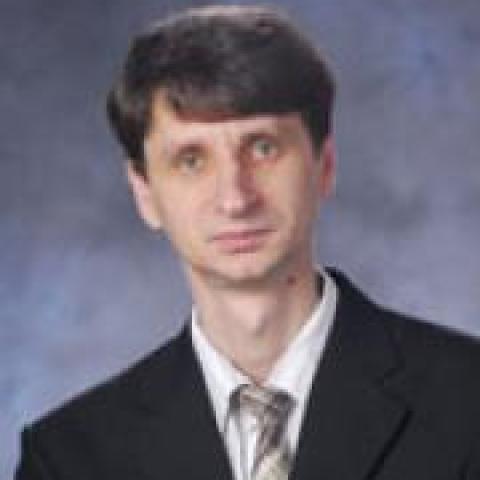
Dr. Alexeev came to Georgia Tech at the beginning of 2008 as an assistant professor. His research background is in the area of fluid mechanics. He uses computer simulations to solve engineering problems in complex fluids, multiphase flows, fluid-structure interactions, and soft materials. As a part of his graduate research at Technion, he investigated resonance oscillations in gases and probed how periodic shock waves excited at resonance can enhance agglomeration of small airborne particles, a process which is important in air pollution control technology. He also investigated wave propagation in vibrated granular materials and its effect on fluidization of inelastic granules. During postdoctoral studies at TU Darmstadt, he examined how microstructures on heated walls can be harnessed to control thermocapillary flows in thin liquid films and to enhance heat transport in the fluid. That could be beneficial in many practical applications, especially in microgravity. At the University of Pittsburgh, he studied the motion of micrometer-sized, compliant particles on patterned substrates to develop efficient means of controlling movement of such particles in microfluidic devices. Such substrates are needed to facilitate various biological assays and tissue engineering studies dealing with individual cells.
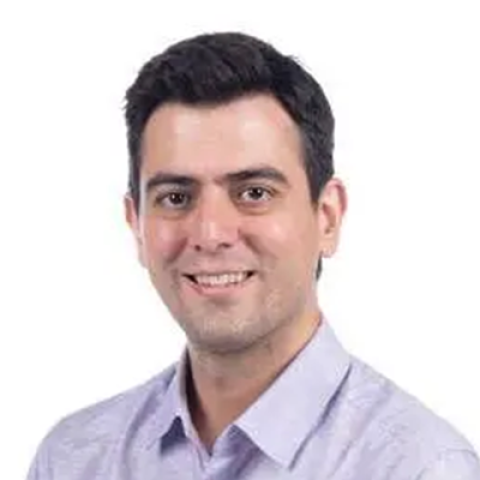
Amirali Aghazadeh is an Assistant Professor in the School of Electrical and Computer Engineering and also program faculty of Machine Learning, Bioinformatics, and Bioengineering Ph.D. programs. He has affiliations with the Institute for Data Engineering and Science (IDEAS) and Institute for Bioengineering and Biosciences. Before joining Georgia Tech, Aghazaeh was a postdoc at Stanford and UC Berkeley and completed his Ph.D. at Rice University. His research focuses on developing machine learning and deep learning solutions for protein and small molecular design and engineering.
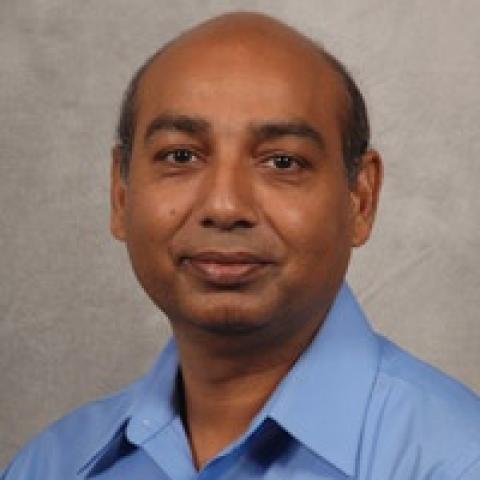
Mustaque Ahamad, Ph.D., is the Associate Director of Education & Outreach for the Institute for Information Security & Privacy (IISP) and professor in the College of Computing at Georiga Tech. Within the IISP, he seeks to proactively address challenges associated with workforce development in cybersecurity. With oversight of formal degree programs and continuing education for working professionals, he is an advocate for greater cybersecurity education and training in order to meet the collective needs of industry and government. Ahamad's research interests are in the areas of converged communications security and security of healthcare systems. As smart-phone-like devices enable ubiquitous access to web and voice channels, the convergence of telephony with the Internet gives rise to new cross-channel threats that can combine online and voice attacks. For example, voice phishing with caller-ID spoofing has been reported for stealing online banking credentials. His data-driven research approach for exploring cross-channel threats has resulted in a better understanding of these threats and more effective ways to combat them. In the healthcare security area, he has worked on monitoring for detection of abuse and fraud. Ahamad co-founded Pindrop Security, which commercialized his group's research in the telephony security area, and he continues to serve as its chief scientist. He also serves as co-chair of the Messaging Malware Mobile Anti-Abuse Working Group (M3AAWG) special interest group on voice and telephony abuse. He also served as an external advisor for the Federal Trade Commission for telephony abuse. For nearly 20 years, he has been a leading figure in information security as an associate of the IISP's predecessor -- the Georgia Tech Information Security Center -- since 1998 and including serving as its director from 2004 to 2012. He earned his Master's and Doctoral degrees in Computer Science from the State University of New York, Stony Brook, and a B.E. (Hons.) degree in Electrical and Electronics Engineering from the Birla Institute of Technology and Science, Pilani, India. Mustaque Ahamad, Ph.D., is the Associate Director of Education & Outreach for the Institute for Information Security & Privacy (IISP) and professor in the College of Computing at Georiga Tech. Within the IISP, he seeks to proactively address challenges associated with workforce development in cybersecurity. With oversight of formal degree programs and continuing education for working professionals, he is an advocate for greater cybersecurity education and training in order to meet the collective needs of industry and government. Ahamad's research interests are in the areas of converged communications security and security of healthcare systems. As smart-phone-like devices enable ubiquitous access to web and voice channels, the convergence of telephony with the Internet gives rise to new cross-channel threats that can combine online and voice attacks. For example, voice phishing with caller-ID spoofing has been reported for stealing online banking credentials. His data-driven research approach for exploring cross-channel threats has resulted in a better understanding of these threats and more effective ways to combat them. In the healthcare security area, he has worked on monitoring for detection of abuse and fraud. Ahamad co-founded Pindrop Security, which commercialized his group's research in the telephony security area, and he continues to serve as its chief scientist. He also serves as co-chair of the Messaging Malware Mobile Anti-Abuse Working Group (M3AAWG) special interest group on voice and telephony abuse. He also served as an external advisor for the Federal Trade Commission for telephony abuse. For nearly 20 years, he has been a leading figure in information security as an associate of the IISP's predecessor -- the Georgia Tech Information Security Center -- since 1998 and including serving as its director from 2004 to 2012. He earned his Master's and Doctoral degrees in Computer Science from the State University of New York, Stony Brook, and a B.E. (Hons.) degree in Electrical and Electronics Engineering from the Birla Institute of Technology and Science, Pilani, India.
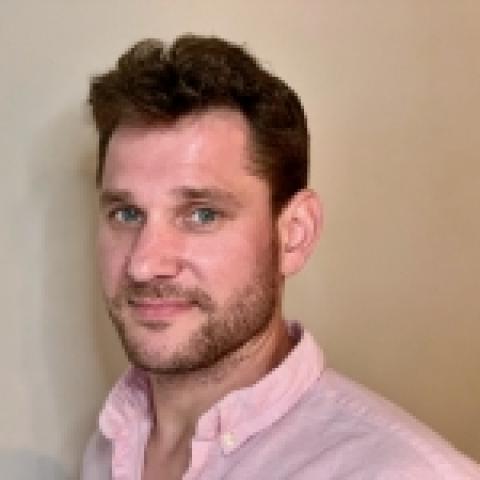
Jacob Abernethy is an Associate Professor in the College of Computing at Georgia Tech. He started his faculty career in the Department of Electrical Engineering and Computer Science at the University of Michigan. He completed his Ph.D. in Computer Science at the University of California at Berkeley, and then spent two years as a Simons postdoctoral fellow at the CIS department at UPenn. Abernethy's primary interest is in Machine Learning, with a particular focus in sequential decision making, online learning, online algorithms and adversarial learning models. He did his Master's degree at TTI-C, and his Bachelor's Degree at MIT.